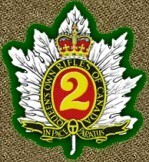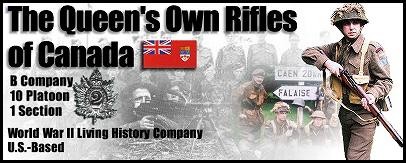|
|
Operation Blockbuster
"The Calcar-Uden road is something that even now I can't remember precisely or properly sort out all the details. Perhaps at that point I was a bit fed up with the war. I had seen so many die. Our platoon officers were killed and wounded before I even got to know their names. Crossing the road in open formation, shells went overhead both ways - theirs and ours. The going was slow. Casualties were heavy....One of the buildings had been chosen as a hiding place for three German soldiers. A roving tank crew found them. They took everything they had and stripped them naked in the February weather. They were going to shoot them....I said the Germans were our prisoners; we were the infantry who had attacked and held the area. The tank men were aggressive. ...They insisted on shooting. The exchange got noisy. The naked Germans were on their knees begging, crying. I told the tank men they'd be charged with murder. I would appear against them. The Germans were evacuated as POWs."
Allen Nickson, C Company
|
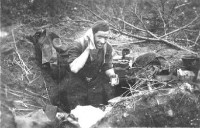
Rifleman Joe Oggy cleans up in his foxhole, utilizing his
mess tin as a wash basin. Winter 1945.
|
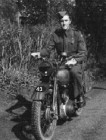
Cpl. John Marin on a Norton motorcycle, England 1944
|
|
Campaign to clear the Scheldt Estuary
"When we approached the Dutch border, we were halted by the border guard, demanding to see our 'papers' before entering Holland! We all had a good laugh at him, but he was really serious until one of the guys pointed a rifle at him and told him to get the hell out of the road!...The conditions for fighting sure changed from what (the Canadians) were used to in France. The only travel was by roads on top of the dykes and these were under fire by the Germans. They had all the crossroads zeroed in for their mortars and artillery, so the poor foot soldier had to stay off the roads and slog along through the flooded fields. In some places, the water was four feet deep."
John Marin, QOR mortar section 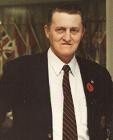
John Martin, 1999
|

|
|
|
